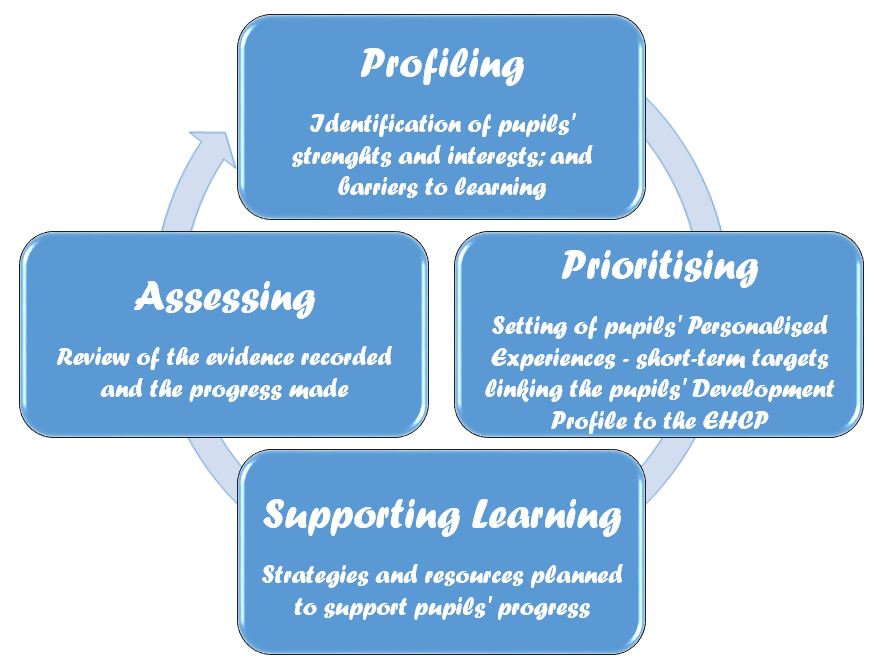_______________________ Personalised Learning
The uniqueness of each of our pupils makes it paramount to provide an individualised curricular development framework. Each pupil has their own Development Profile which identifies individual progress and priorities based on an assessment of need.

Each pupil has their own Development Profile which identifies individual progress and priorities based on an assessment of need. It is very important though to clarify that this Development Profile is not a checklist of skills to be worked through but a progression framework, designed to give an “at a glance” overview of the pupils’ main learning development areas and the areas for focus. Teachers evaluate the extent to which they think their pupils are developing using a progress scale based on four Development Indicators – the Profiling Stage.

Once each pupil’s strengths, interests and main barriers to learning have been identified – the Profiling stage, the next step is the Prioritising stage, in which a number of short term targets are set – Personalised Experiences of Development, which are directly linked to the Areas of Development as well as the pupil’s EHCP steps towards a specific outcome – the Prioritising Stage. The purpose of these Personalised Experiences is to assist staff in drawing development targets which are appropriately targeted to ensure each individual pupil develop and progress. There is an emphasis on the provision planned in order to support pupils to make progress, not on the timescale. This allows for flexibility in the amount of time required for these Personalised Experiences to be achieved and to which point on the progress scale.
Using the Curriculum themed Learning Ideas, the pupils’ individualised Development Profile and their Personalised Experiences, bespoke provision is developed for each pupil, thus allowing teachers’ lessons and resources to be planned in direct response to a pupil’s individual needs and interests, taking account of their barriers to learning – the Supporting Learning Stage.
Essential to this development framework is the recording of progress of each pupil to ensure that evidence which may be in form of photos, written statements or examples of work can provide essential information on pupils’ progress and development – the Assessing Stage.

